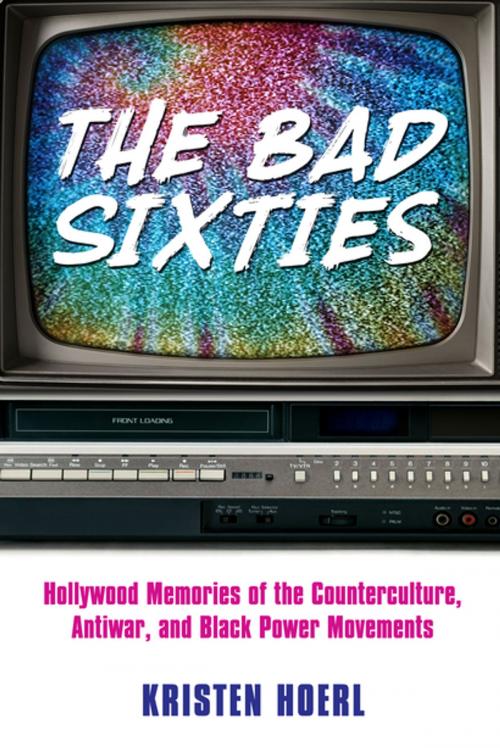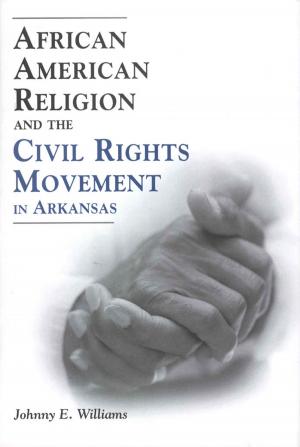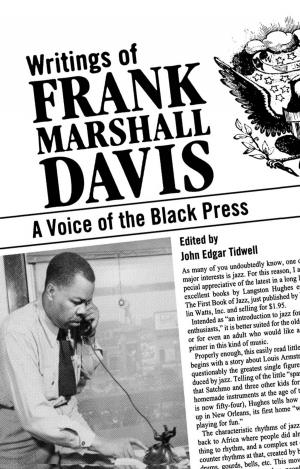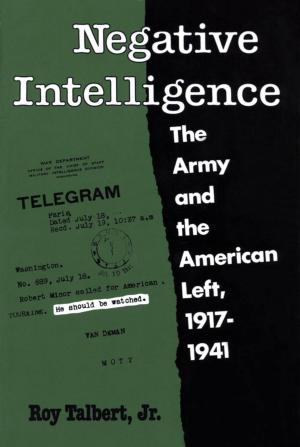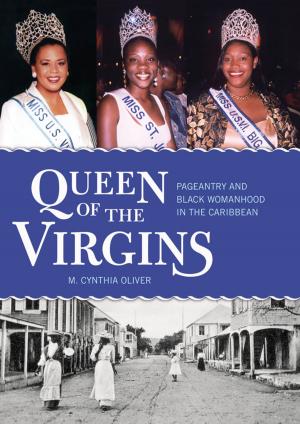The Bad Sixties
Hollywood Memories of the Counterculture, Antiwar, and Black Power Movements
Nonfiction, Reference & Language, Language Arts, Public Speaking, Rhetoric, Social & Cultural Studies, Social Science, Cultural Studies, Popular Culture| Author: | Kristen Hoerl | ISBN: | 9781496817242 |
| Publisher: | University Press of Mississippi | Publication: | June 14, 2018 |
| Imprint: | University Press of Mississippi | Language: | English |
| Author: | Kristen Hoerl |
| ISBN: | 9781496817242 |
| Publisher: | University Press of Mississippi |
| Publication: | June 14, 2018 |
| Imprint: | University Press of Mississippi |
| Language: | English |
Winner of the 2018 Book Award from the American Studies Division of the National Communication Association
Ongoing interest in the turmoil of the 1960s clearly demonstrates how these social conflicts continue to affect contemporary politics. In The Bad Sixties: Hollywood Memories of the Counterculture, Antiwar, and Black Power Movements, Kristen Hoerl focuses on fictionalized portrayals of 1960s activism in popular television and film. Hoerl shows how Hollywood has perpetuated politics deploring the detrimental consequences of the 1960s on traditional American values. During the decade, people collectively raised fundamental questions about the limits of democracy under capitalism. But Hollywood has proved dismissive, if not adversarial, to the role of dissent in fostering progressive social change.
Film and television are salient resources of shared understanding for audiences born after the 1960s because movies and television programs are the most accessible visual medium for observing the decade's social movements. Hoerl indicates that a variety of television programs, such as Family Ties, The Wonder Years, and Law and Order, along with Hollywood films, including Forrest Gump, have reinforced images of the "bad sixties." These stories portray a period in which urban riots, antiwar protests, sexual experimentation, drug abuse, and feminism led to national division and moral decay. According to Hoerl, these messages supply distorted civics lessons about what we should value and how we might legitimately participate in our democracy.
These warped messages contribute to "selective amnesia," a term that stresses how popular media renders radical ideas and political projects null or nonexistent. Selective amnesia removes the spectacular events and figures that define the late-1960s from their motives and context, flattening their meaning into reductive stereotypes. Despite popular television and film, Hoerl explains, memory of 1960s activism still offers a potent resource for imagining how we can strive collectively to achieve social justice and equality.
Winner of the 2018 Book Award from the American Studies Division of the National Communication Association
Ongoing interest in the turmoil of the 1960s clearly demonstrates how these social conflicts continue to affect contemporary politics. In The Bad Sixties: Hollywood Memories of the Counterculture, Antiwar, and Black Power Movements, Kristen Hoerl focuses on fictionalized portrayals of 1960s activism in popular television and film. Hoerl shows how Hollywood has perpetuated politics deploring the detrimental consequences of the 1960s on traditional American values. During the decade, people collectively raised fundamental questions about the limits of democracy under capitalism. But Hollywood has proved dismissive, if not adversarial, to the role of dissent in fostering progressive social change.
Film and television are salient resources of shared understanding for audiences born after the 1960s because movies and television programs are the most accessible visual medium for observing the decade's social movements. Hoerl indicates that a variety of television programs, such as Family Ties, The Wonder Years, and Law and Order, along with Hollywood films, including Forrest Gump, have reinforced images of the "bad sixties." These stories portray a period in which urban riots, antiwar protests, sexual experimentation, drug abuse, and feminism led to national division and moral decay. According to Hoerl, these messages supply distorted civics lessons about what we should value and how we might legitimately participate in our democracy.
These warped messages contribute to "selective amnesia," a term that stresses how popular media renders radical ideas and political projects null or nonexistent. Selective amnesia removes the spectacular events and figures that define the late-1960s from their motives and context, flattening their meaning into reductive stereotypes. Despite popular television and film, Hoerl explains, memory of 1960s activism still offers a potent resource for imagining how we can strive collectively to achieve social justice and equality.
